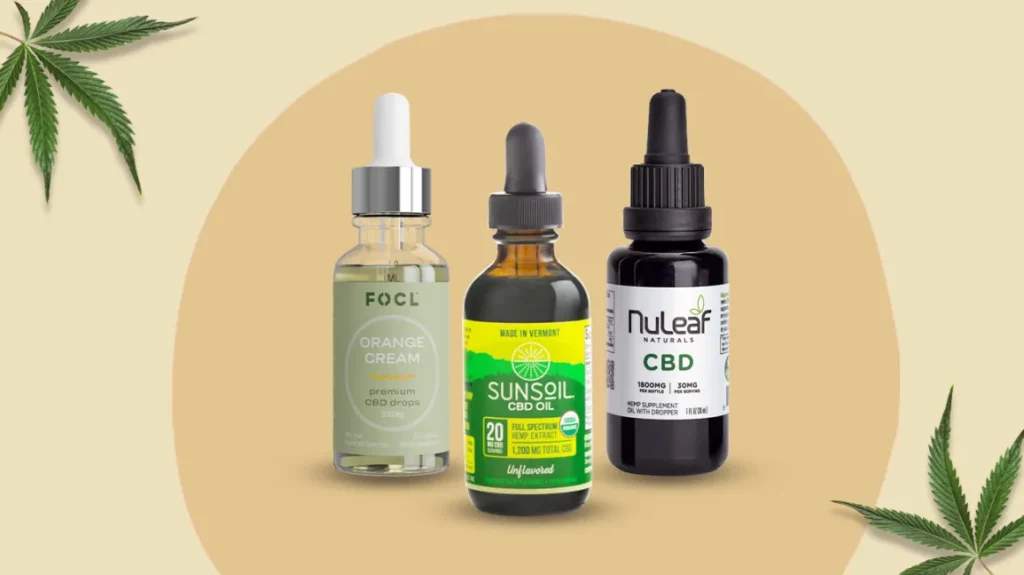There are several ways people try to seek relief from acid reflux or gastroesophageal reflux disease (GERD), including using No Cap Hemp Co HHC Gummies. This article highlights how CBD oil relieves acid reflux by preventing oxidative stress, minimizing stomach acid, and preventing esophageal relaxation, among other ways.
Some people adjust their diet and use pharmaceutical medications for acid reflux or gastroesophageal reflux disease (GERD). However, most are running to natural treatments such as CBD oil. Pharmaceutical drugs offer short-term relief and do not provide long-term benefits. Moreover, pharmaceutical drugs risk serious side effects upon continued use, such as nausea, headache, vomiting, and vitamin deficiencies. However, the natural compound (CBD oil) has shown to be an effective treatment for acid reflux. More importantly, CBD oil appears to be safer than conventional treatments. This article discusses CBD\’s mechanism for fighting acid reflux and GERD and the basics of CBD oil.
Apprehending CBD
Cannabidiol (CBD) is a cannabinoid or chemical compound found in cannabis plants. CBD interacts with the body\’s endocannabinoid system (ECS) besides other cannabinoids. The ECS is a complex system that controls major body functions to maintain stability in the body. It controls pain, metabolism, sleep, anxiety, and inflammation. CBD\’s popularity has grown over the years owing to supposed health benefits. Eric et al. (2020) showed that although most people use CBD for psychological issues, a lower percentage utilize it for digestive problems like acid reflux.
Research on CBD at the early stages and most evidence is anecdotal. However, more research is required to make assertive conclusions. Most of the research in the cannabis field is focused on THC (tetrahydrocannabinol). THC is the euphoric substance of cannabis, so it causes a high sensation. Existing research shows promising results already. CBD isn\’t psychoactive and has been lauded for powerful health and beauty effects. Graczyk et al. (2021) showed that CBD can improve sleep, better moods, pain alleviation, and reduce stress. Moreover, CBD Gummies may affect your food cravings or appetite.
Cocetta et al. (2021) demonstrated CBD\’s effects on inflammation and immunity, appetite control, gastrointestinal motility, and intestinal and gastric acid secretion. The anti-inflammatory qualities of CBD are useful in modulating the volatility and movement of intestinal propulsions. According to Li et al. (2013), CBD affects intestinal propulsions.
Definition of Acid Reflux
The gastrointestinal system is one of the most complicated and sensitive human organ systems. An upset of this system may cause overproduction or backflow of stomach acid, better known as acid reflux. This backwash often irritates the esophagus lining.
If you\’ve experienced heartburn at least once in your life, then you\’ve also experienced acid reflux. Acid reflux is also called GERD and is a condition that occurs when the contents of your stomach go back into your esophagus. The lower esophagus muscles remain open after permitting food to pass. You then experience a painful and burning feeling up your chest and throat called heartburn. Persons who suffer from this condition will likely experience heartburn following meals, drinking coffee and alcohol.
Sometimes GERD is considered a condition in which acid reflux occurs. Often, GERD is treated by mixing medications with lifestyle changes to reduce the amount of acid your stomach is generating. However, in severe cases, you may require surgery.
CBD May Reduce Oxidative Stress and Inflammation
Oxidative stress and high levels of inflammation are common symptoms of GERD. However, CBD has antioxidant and anti-inflammatory properties. Atalay, Jarocka-Karpowicz, & Skrzydlewska (2020) showed that CBD products might reduce oxidative stress and inflammation in GERD.
CBD Prevents Esophageal Relaxation
A major GERD cause is the weakening of the lower esophageal sphincter (LES). The lower esophageal sphincter is a muscular valve separating the esophagus and stomach. When the LES opens to let food into your stomach, it should remain closed to prevent its contents from climbing back into the esophagus. However, these muscles are weak; they relax when they shouldn\’t, causing acid reflux. Luquiens et al. (2015) showed that cannabinoids, particularly THC, appear to prevent the relaxation of the LES; thus, the amount of stomach acid that flows back into the esophagus is reduced.
CBD May Minimize Stomach Acid
GERD medications mainly aim at the reduction of stomach acid reduction. Studies have shown that cannabinoids and cannabis minimize stomach acid production, thus protecting stomach tissue from injury.
CBD for Pain Management
Acid reflux is accompanied by pain due to corroding the esophageal walls with the acid. CBD oil might help with pain, including acid reflux. Experts suggest that taking tinctures or capsules may be great at reducing acid reflux.
CBD Dosage for Reflux
The Food and Drug Administration (FDA) is yet to regulate CBD products, so unless that happens, there\’s no one size fits all CBD dosage for this condition. The suitable CBD dosage for acid reflux relies on factors such as metabolism, weight, age, and the severity of symptoms. The potency or strength, CBD Oil UK, and method of administration also influence the onset, duration, and type of effects.
You\’re advised to start with a low dosage and note your body\’s response. Additionally, the full or broad-spectrum CBD provided the entourage effect. It\’s the mechanism by which all the plant cannabinoids, including THC, flavonoids, and terpenes, work together to optimize effects rather than alone. However, the THC level shouldn\’t exceed 0.3% under the 2018 Farm Bill. This THC level isn\’t enough to alter your mind. A whole-plant extract with CBD and THC provided better results than isolated THC. However, persons who may react to other compounds except hemp or fear failing in a drug test for THC may go for CBD isolate. CBD isolate has only the cannabidiol compound but doesn\’t produce the entourage effect. Therefore, after finding the dosage suitable for you, stick to it.
Conclusion
Acid reflux is a gastroesophageal condition that causes stomach discomfort resulting in reflux or backflow of gastric acid to the esophageal tract. Some of its causes include poor lifestyle choices and a bad diet. The frequent occurrence of this condition is called GERD, which is considered more harmful. CBD interacts with ECS receptors in the gastrointestinal tract, which causes CBD to alleviate inflammation. Also, through this interaction, CBD lowers the production of stomach acid, which improves gastrointestinal motility, thus preventing contents from flowing back to the esophagus. Therefore, CBD is a potent anti-acid reflux agent, but more research is needed to make conclusive assertions. Seek medical advice from a healthcare practitioner before using CBD to treat acid reflux.
References
Cocetta, V., Governa, P., Borgonetti, V., Tinazzi, M., Peron, G., Catanzaro, D., … & Montopoli, M. (2021). Cannabidiol isolated from Cannabis sativa L. protects intestinal barrier from in vitro inflammation and oxidative stress. Frontiers in pharmacology, 12, 641210.
Eric C. Leas, Ph.D., MPH, Erik M. Hendrickson, MPH, MA, Alicia L. Nobles, Ph.D., MS, Rory Todd, BA, Davey M. Smith, MD, MAS, Mark Dredze, Ph.D., and John W. Ayers, Ph.D., MA. (2020). Self-reported Cannabidiol (CBD) Use for Conditions With Proven Therapies.
Graczyk, M., Łukowicz, M., & Dzierzanowski, T. (2021). Prospects for the use of cannabinoids in psychiatric disorders. Frontiers in psychiatry, 12, 620073.
Li, K., Fichna, J., Schicho, R., Saur, D., Bashashati, M., Mackie, K., … & Storr, M. (2013). A role for O-1602 and G protein-coupled receptor GPR55 in the control of colonic motility in mice. Neuropharmacology, 71, 255-263.
Luquiens, A., Lourenco, N., Benyamina, A., & Aubin, H. J. (2015). Self-medication of achalasia with cannabis, complicated by a cannabis use disorder. World Journal of Gastroenterology: WJG, 21(20), 6381.
Atalay, S., Jarocka-Karpowicz, I., & Skrzydlewska, E. (2020). Antioxidative and anti-inflammatory properties of cannabidiol. Antioxidants, 9(1), 21.
- Does CBD Oil Help You Sleep Better? - November 25, 2022
- Does CBD Oil Help With Sunburn? - November 25, 2022
- Does CBD Oil Help Relieve Acid Reflux - November 25, 2022






